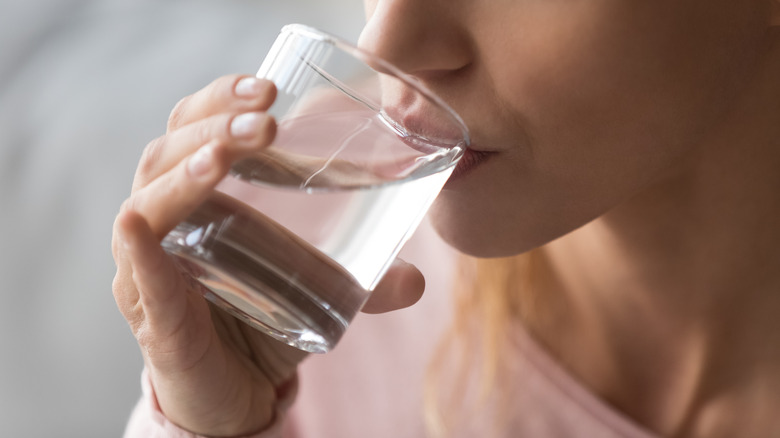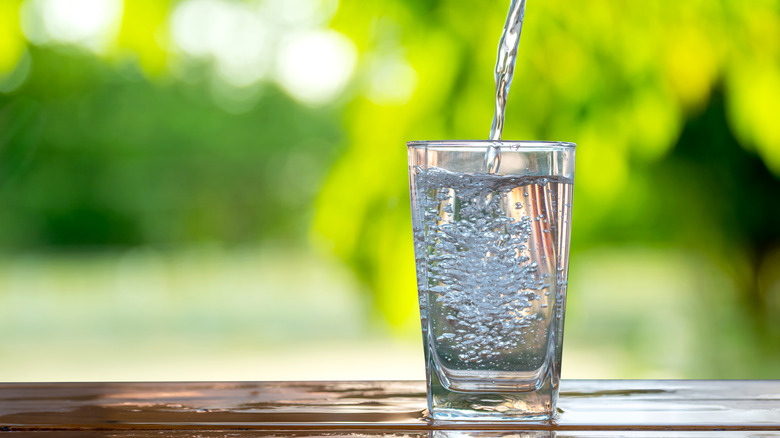This Is What Happens To Your Body When You Die Of Thirst
Terrible things can happen when we don't drink enough. Dehydration is a slow and insidious danger, and it too has a range of effects on the body. Per Healthline, dehydration can be mild or more serious, the latter tending to require hospital treatment. Diarrhea and sickness can result as regular body functions begin to shut down.
Human beings may be made up of an average 60% water, according to Medical News Today, but it's crucial that we keep those liquids topped up. The slow and awful process of dying of thirst is too grim to contemplate. So, naturally, you can read all about it below.
Health24 reports that, depending on conditions, we can survive for around a week without drinking. When it's warmer or when the person in question is or has been active, it can be a matter of mere days. The recommended 2.5 liters or so daily is derived from the need to replenish the average fluid losses: one liter in perspiration and another liter and a half in urine. The consequences of failing to do so continue to ramp up as time passes.
The body's organs rely on water
The body's urine production will slow, Health24 says, and blood pressure will steadily fall as the blood begins to thicken. Vital salts will also be lost, and all these processes negatively affect the kidneys, which will eventually fail and halt urine production entirely.
Precision Hydration adds that the thickening of blood leads the body to only direct it to organs that are immediately necessary for survival, which increases the damage to the liver, kidneys, and other internal organs. With the former two no longer able to perform their role of filtering away toxins, this can leave the body vulnerable to death from multiple organ failures. In hot conditions, this process will occur much faster, as the loss of fluids will too.
According to Jeffrey Burns of the National Kidney Foundation (via The Washington Post), a lack of fluid causes the cells in the body to shrink, and that includes brain cells. Brain cells, Burns stated, "don't operate normally when they're shrinking," which means that those dying of thirst may also experience delirium and hallucinations before passing. Perhaps most harrowing of all, the brain can cause the tearing of many blood vessels in the head as it shrinks and pulls away from them. In short, thirst is a slow and terrible killer, but mercifully, many are unconscious before feeling the height of the pain it can cause.

